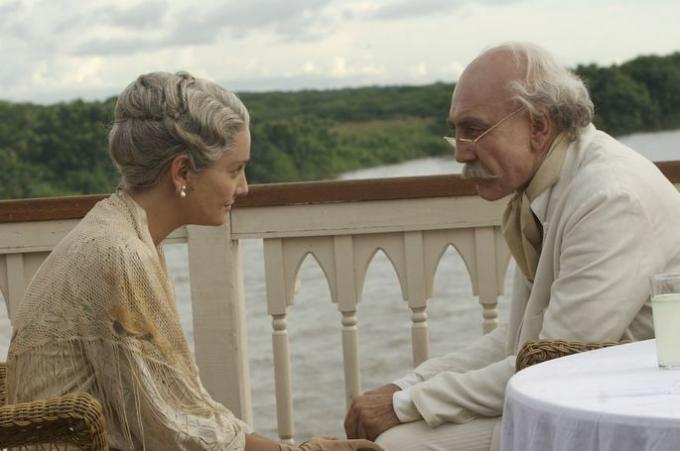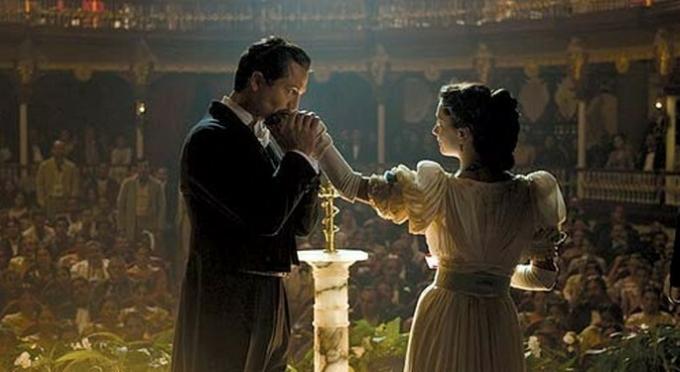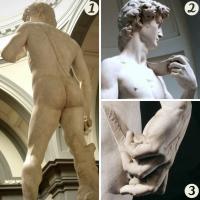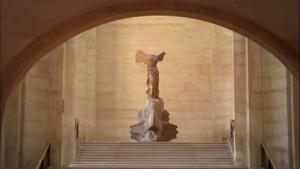Love in the time of cholera: summary, analysis and characters of the book
Love in the time of cholera is a novel by Gabriel García Márquez, first published in 1985. He represents the only work by García Márquez entirely devoted to love as its main theme. The author was inspired by the history of the courtship of his parents, and also took as a reference the great love stories of literature.
Having as its axis the love story between Florenino Ariza and Fermina Daza, Gabriel García Márquez walks through the different registers of love: romantic love, love of children, love built into everyday customs, passion between furtive lovers, friendship and loyalty. Love has to face social conventions, the passage of time, old age and death, all during the accelerated historical transformation between the 19th and 20th centuries.
Next, we will present a summary of the story of the novel Love in the time of cholera according to the chronological order of events. Then, we will present a brief analysis, in order to provide some keys for the interpretation of the novel, to conclude with the main characters and the most famous phrases of the novel.
Book summary Love in the time of cholera

Florentino Ariza was the unrecognized son of Tránsito Ariza and Pío Quinto Loayza. The Quinto Loayza brothers owned the Compañía Fluvial del Caribe. Despite this, Florentino had to drop out of school to work in the post office. There he befriended the telegrapher Lotario Thugut, who in addition to teaching him music, also taught him the trade of telegrapher.
The birth of a love
On one occasion, Florentino took a telegram to the home of Lorenzo Daza, an illiterate man and trafficker of mules that, after the death of his wife, he was determined to make his daughter, Fermina, a lady of society. With them also lived Aunt Escolástica Daza, who had taken care of Fermina's upbringing.
When Florentino arrived at that house, he saw Fermina for the first time and fell in love with her. Soon after, he began to write to the young woman, until he got her to reciprocate. The letters came and went between them, with the complicity of Aunt Scholastica.
An insurmountable obstacle
Florentino had serious intentions with Fermina, so he decided to work and save to ask for marriage within two years. Her plans fell apart when Sister Franca de la Luz, superior of the school where Fermina was studying, discovered her writing a love letter. Refusing to reveal the name of the crush on her, she was expelled from her.
When Lorenzo Daza found out, he undertook a search of his daughter's room until he found the name of the aforementioned. Florentino Ariza, a natural son without his own fortune, was not an acceptable match for him.
In her indignation, Lorenzo blamed her aunt Scholastica for her complicity and threw her out of the house. Later, he marched with his daughter to Valledupar for a long time, where Fermina made friends with her cousin Hildebranda.
Some time later, Fermina and her father returned to the city, where she was reunited with Florentino. However, he did not feel the same youthful emotion from her past, and asked him to forget about her.
The marriage of Fermina Daza and Juvenal Urbino
At that time, Dr. Juvenal Urbino, a 28-year-old aristocrat, stood out in the city, highly respected for having controlled the cholera epidemic. He was interested in Fermina Daza since he met her at a home medical consultation. Dr. Urbino, Lorenzo Daza, and Sister Franca de la Luz conspired to persuade her to accept her courtship, but she always rejected him.
The Daza family received a visit from Cousin Hildebranda at that time. On one occasion, the two young women took a ride in Dr. Urbino's car. Seeing how he laughed with his cousin, Fermina felt jealous. The episode, added to the fear of remaining single, gave her the impetus that she lacked to accept Juvenal's courtship and marriage proposal.
Life goes on
Upon learning of the engagement, Florentino sank into sadness. His mother turned to Florentino's uncle, Leo XII Loayza, so that he could find her a job in another city. In effect, he got him a place as a telegrapher in Villa de Leyva and Florentino set out on the journey.
Although the young man intended to remain chaste for Fermina, he was stripped of her virginity by assault during that trip. Since then, Florentino became a casanova and began a detailed record of his mistresses.
A reunion and an oath
Florentino gave up his job as a telegrapher and returned. He was reunited with Fermina, who was six months pregnant. Seeing her made a woman of the world, Florentino decided to make fame and fortune to deserve her as soon as her husband died.
To fulfill his purpose, Florentino asked his uncle Leo XII for a job in the Compañía Fluvial del Caribe. He would soon meet Leona Cassiani, who would become his confidante and help him move up in the company. During this period, he wrote love letters for other lovers, always inspired by the memory of Fermina Daza.
Fermina and Juvenal had two children: Marco Aurelio and Ofelia, and life took its course. Fermina had to face in those years of the 20th century a first illegal business scandal involving her father, and Juvenal's confession of infidelity. Both situations ended up being controlled.
The death of Juvenal Urbino
After more than fifty years, Dr. Urbino had to make a medical report for the suicide of his chess partner, Jeremiah de Saint-Amour, who was afraid of facing old age. The event altered the Sunday routine of the doctor, who died that same afternoon accidentally, while trying to rescue the parrot from the house, which had been trained by him to that he spoke Latin.
Florentino Ariza, who had finally become president of the Compañía Fluvial del Caribe, he was with one of his lovers, América Vicuña, when she learned of the death of Dr. Juvenal Urbino. The next day, he visited her widow and, little by little, began to visit her, with the approval of her son Marco Aurelio.
However, a new scandal once again darkened Fermina's days: the illegalities of her father were made public and, Furthermore, she spread a false rumor of an affair between the late Juvenal Urbino, and Fermina's best friend, Lucrecia. The scandal aroused the fears of her daughter Ofelia, who tried to censor her friendship with Florentino. Fermina considered it disrespectful and threw her out of the house.
New fidelity
Faced with the tension that overwhelms Fermina, Florentino invites her to take a season aboard the Nueva Fidelidad ship. There, the flame of love that she once felt for Florentino revives in her.
A shadow threatens them: when the ship goes to look for return passengers, Fermina distinguishes between them acquaintances who may put her honor and reputation at risk by failing to observe the period of mourning for her husband. Florentino asks the captain to raise the yellow flag, a sign of the presence of cholera on the boat.
Excused before the passengers, the ship continues its course, but later, they meet an armed patrol that demands them to stop to quarantine the ship. Knowing that they would face serious problems, Captain Samaritano asks Florentino what to do. He asks her to continue the journey for a lifetime.
Analysis of the book Love in the time of cholera

On Love in the time of cholera, Gabriel García Márquez presents us with a love story that must wait half a century to be consummated. Thus, love is presented as the main theme and, at the same time, it becomes the crystal with which other aspects of reality are observed. Among them, the economic condition and the class struggle, social conventions, illness, old age and death.
The story is structured in six long chapters without numbering or title. The author has chosen the voice of an omniscient narrator who goes to temporal leaps to make us travel back and forth in history. The hyperbolic style of the narrative is striking, that is, the use of images loaded with exaggeration, which are absolutely significant in fiction.
The novel is situated in the transition between the 19th and 20th centuries, although the story begins around 1930, in a colonial city in Colombia. After presenting the death of Dr. Urbino, the narrator takes us fifty years ago, when Florentino Ariza and Fermina Daza fell in love for the first time.
The social question and conventions
The love drama between Florentino and Fermina is anchored, precisely, in the social and economic position of both. He is a suitor with no paternal surname and no resources of his own. She is the only child of a mule dealer, determined to make his daughter a society lady.
In this equation, Dr. Urbino represents the aristocracy, not only in terms of money, but also in the dignity of medical practice, which makes him "savior" of the people. He is the match that Fermina's father hopes (and so is she, in a way).
None of the characters dare to defy social conventions. Not even Florentino himself, who is patiently awaiting Fermina's widowhood. Therefore, the social question and the conventions are decisive.
The illness
The disease acts as an indicator of the precarious social and health situation of the city. This city still retains its colonial features, since in many respects it is alien to the modernization process at the turn of the century. For this reason, Dr. Juvenal Urbino represents healing and, in a sense, progress.
But, on the other hand, the disease is also linked to love. For Juvenal Urbino, taking care of the illness opens the door to affection (both for the town and for Fermina).
Even more significant will be the fact that love is compared to disease. In fact, Tránsito Ariza, seeing his son grieving for love, believes him to be ill with cholera. Let's see:
"It was enough with an insidious questioning, first of him and then of his mother, to prove once again that the symptoms of love are the same as those of cholera."
Touched by a fine and acute sense of humor, love is represented by the author as a feeling capable of altering not only the emotional balance, but also one's health and understanding. To love, like illness, is to suffer.
Time, old age and death
The death of the character Jeremiah de Saint-Amour opens the story. For him, old age does not deserve to be lived. But the love between Florentino and Fermina prints another look on the golden years. Time and death are allies of the Florentine lover, even though at times they may seem treacherous.
For the lover in love, old age will be the opportunity to see his life dream crystallized: to love Fermina Daza. Old age is thus represented as a space for hope, as a time that can still be touched by joy. Time is eternity when love is kept alive.
Love conquers all
It could be said that the novel talks about a romantic story, but it is more than that because it reflects on the manifestations of love. It is based on a classic topic of literature known as Omnia vincit Love, which means: love conquers everything.
It is not just about victorious love over the problems of existence, but it is about thinking of love as that which nourishes life itself of value and meaning, that which makes life, old age and death have sense.
You may also like:
- One hundred years of loneliness
- The colonel has no one to write to him
- A Chronicle of a Death Foretold
Book characters Love in the time of cholera
Main characters
Florentino Ariza. Illegitimate son of Pío Quinto and Tránsito Ariza. He fell in love with Fermina Daza and swore eternal love to her. He left his studies to work. In his adulthood, he managed to rise to president of the Caribbean River Company.
Fermina Daza Sánchez. Young man with a proud and impulsive character, who looks at the convenience of making a good marriage arrangement, which he maintained with Juvenal Urbino. She falls in love with Florentino at first, but then becomes disenchanted with him. He will fall in love with Florentino again in old age.
Juvenal Urbino. Doctor by profession and husband of Fermina Daza. He was the one who liberated the people from the disease of cholera. He had a brief affair with Barbara Lynch. She accidentally died while trying to rescue the parrot from the house.
Secondary characters
Since there are many characters that are mentioned in the novel, we will take care to present the most significant ones.
Relatives of Fermina Daza
- Lorenzo Daza. Fermina's father.
- Aunt Scholastica. Fermina's paternal aunt.
- Hildebranda Sánchez. Fermina's cousin and confidant.
- Lisimaco Sánchez. Hildebranda's father and Fermina's maternal uncle.
- Marco Aurelio Urbino Daza, son of Fermina and Juvenal.
- Ofelia, daughter of Fermina and Juvenal.
Relatives of Florentino Ariza
- Ariza Transit. Mother of Florentino Ariza.
- Pío Quinto Loayza. Father of Florentino Ariza.
- Uncle Leo XII Quinto Loayza. Florentino's uncle.
Florentine lovers
- The Widow of Nazareth.
- Santander absence. Also lover of Captain Rosendo.
- Crazy one.
- Sara Noriega. Writer and teacher of civility and civic instruction.
- Olimpia Zuleta. Married; murdered by her husband.
- Rosalba.
- Prudencia Pitre, called the Widow of Two.
- Josefa. Widow of Zúñiga.
- Prudence. Widow of Arellano.
- Angeles Alfaro. Music teacher.
- Andrea Varón. Prostitute on her own.
- Brígida Zuleta.
- Sara Noriega.
- America Vicuña. Teen.
Other characters
- Jeremiah de Saint-Amour. Juvenal Urbino's chess partner.
- Jeremiah de Saint-Amour's wife.
- Lácides Olivella, disciple of Dr. Juvenal Urbino.
- Aminta Dechamps, wife of Lácides Olivella.
- Lotario Thugut. German telegrapher, friend of Florentino.
- Leona Cassiani. Friend and confidant of Florentino Ariza.
- Barbara Lynch. Patient and lover of Dr. Juvenal Urbino.
- Sister Franca de la Luz. Superior of the College of the Presentation of the Blessed Virgin.
- Gala Placidia. Fermina's maid.
- Worthy Pardo. Cook of the Urbino Daza family.
- Captain Rosendo de la Rosa. Captain of the ship.
- Godfather of Florentino, homeopath.
- Police Commissioner.
- Medical student.
- Euclid. Diver boy.
- Dr. Marco Aurelio Urbino. Juvenal Urbino's father.
- Mrs. White. Juvenal Urbino's mother.
- Lázara Conde. School teacher.
- Lucrecia del Real. Friend of Fermina Daza.
- Diego Samaritano. Captain of the ship.
- Zenaida Neves. Lover of Diego Samaritano.
- Francis Adonay. Dentist.
Pets
- Mister Woodrow Wilson, Jeremiah de Saint-Amour's dog.
- Parrot, pet of the Urbino Daza family, which causes Juvenal's death.
Famous quotes from the book Love in the time of cholera
We have selected some of the most resonant phrases of the novel Love in the time of cholera, and we have grouped them by topic to facilitate their finding.
On love and marriage
He had never imagined that curiosity was another of the many traps of love.
***
There is no greater glory than dying for love.
***
God only knows how much he loved you.
***
Love of the soul from the waist up and love of the body from the waist down.
***
He taught her the only thing he had to learn for love: that no one teaches life.
***
He had to teach her to think of love as a state of grace that was not a means to anything, but an origin and an end in itself.
***
Love grows greater and nobler in calamity.
***
The fact that someone does not love you as you want, does not mean that they do not love you with all of her being.
***
It's incredible how you can be so happy for so many years, in the midst of so many fights, so many damn things, without really knowing if that is love or not.
***
Life would have been quite different for both of them, if they had known in time that it was easier to overcome the great marital catastrophes than the tiny miseries of each day.
***
The problem with marriage is that it ends every night after making love, and you have to rebuild it every morning before breakfast.
***
Neither he nor she could tell whether this reciprocal servitude was founded on love or comfort, but never they had asked him with their hands on their hearts, because both had always preferred to ignore the answer.
***
The problem of public life is learning to master terror, the problem of married life is learning to master boredom.
***
In the course of the years they both came to the wise conclusion by different paths that it was not It was possible to live together in another way, or love each other in another way: nothing in this world was more difficult than love.
About life
Wisdom comes to us when it is no longer good for anything.
***
The scalpel is the greatest proof of the failure of medicine.
***
The only thing worse than bad health is bad reputation.
***
He was still too young to know that the memory of the heart eliminates the bad memories and magnifies the good ones, and that thanks to this artifice we are able to cope with the past.
***
He was carried away by his conviction that human beings are not born forever the day their mothers give birth to them, but that life forces them again and many times to give birth to themselves.
***
He discovered with great joy that children do not love each other because they are children but because of the friendship of their upbringing.
***
If we widows have any advantage, it is that we no longer have anyone to send us.
***
Florentino Ariza finally understood that he can be friends with a woman without sleeping with her.
***
We were beginning to live in peace after nine civil wars in half a century, which, when counted, could be only one: always the same.
***
Women think more in the hidden meaning of the questions than in the questions themselves.
About old age and death
A century ago they screwed up my life with that poor man because we were too young, and now they want to repeat it to us because we are too old.
***
Florentino Ariza felt that the time of old age was not a horizontal torrent, but a hollowed-out cistern where memory was drained.
***
Each one is the owner of his own death, and the only thing we can do, when the time comes, is help him to die without fear or pain.
***
The people you love should die with all their things.
***
"Death has no sense of ridicule," he said, adding sadly, "especially at our age."
***
The only thing that hurts me to die is that it is not of love.
On writing and poets
Without trying, without even knowing it, he demonstrated with his life the reason for his father, who repeated until the last breath that there was no one with more practical sense, neither more stubborn stonemasons nor more lucid and dangerous managers than poets.
***
He who has no memory becomes one of paper.
It may interest you:
- Life and work of Gabriel García Márquez
- Magical realism



